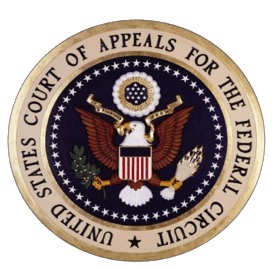“The CAFC explained that even if the Supreme Court were to grant review and decide that the asserted claims of AAM’s patent are patent eligible, thus requiring the CAFC to recall its mandate, such an action does not constitute irreparable harm.”
 On Friday, the United States Court of Appeals for the Federal Circuit (CAFC) issued a precedential order in American Axle & Manufacturing, Inc. v. Neapco Holdings denying American Axle’s (AAM’s) motion to stay issuance of the mandate pending the filing of a petition for writ of certiorari in the Supreme Court. AAM’s motion to stay was the result of the CAFC’s precedential modified opinion that issued on July 31, 2020 modifying a prior October 3, 2019 opinion. In the July 31 opinion, the CAFC vacated the prior judgment with respect to claim 1 of U.S. Patent No. 7,774,911
On Friday, the United States Court of Appeals for the Federal Circuit (CAFC) issued a precedential order in American Axle & Manufacturing, Inc. v. Neapco Holdings denying American Axle’s (AAM’s) motion to stay issuance of the mandate pending the filing of a petition for writ of certiorari in the Supreme Court. AAM’s motion to stay was the result of the CAFC’s precedential modified opinion that issued on July 31, 2020 modifying a prior October 3, 2019 opinion. In the July 31 opinion, the CAFC vacated the prior judgment with respect to claim 1 of U.S. Patent No. 7,774,911
and remanded to the district court to address eligibility with respect to claim 22 and related claims.
Majority Opinion
Initially, the CAFC noted that the Federal Rule of Appellate Procedure 41 provides that a motion for stay of the mandate “must show that the petition would present a substantial question and that there is good cause for a stay.” Applying the three-prong test of Hollingsworth v. Perry, the CAFC noted that in order for a motion to stay to be granted, an applicant must show “(1) a reasonable probability that four Justices will consider the issue sufficiently meritorious to grant certiorari; (2) a fair prospect that a majority of the Court will vote to reverse the judgment below; and (3) a likelihood that irreparable harm will result from the denial of a stay. In close cases the Circuit Justice or the Court will balance the equities and weigh the relative harms to the applicant and to the respondent.”
The Court noted that AAM did not make the required showing of a likelihood of irreparable injury absent a stay. In particular, the CAFC explained that, with respect to claim 22 and related claims, the decision of the CAFC requires no further action by the district court since the claims have been held to be unpatentable. The CAFC explained that even if the Supreme Court were to grant review and decide that the asserted claims of AAM’s patent are patent eligible, thus requiring the CAFC to recall its mandate, such an action does not constitute irreparable harm.
The decision of the CAFC regarding claim 1 and related claims was remanded to the district court for further proceedings. According to AAM, there was “good cause for a stay” for claim 1 and related claims because it “intends to petition for certiorari with regard to the entirety” of the CAFC judgment and “[s]ignificant burdens and expenses would accrue” should the mandate issue because “the parties and district court would continue to litigate issues related to claim 1.” Citing Renegotiation Bd. v. Bannercraft Clothing Co., the CAFC noted “[m]ere litigation expense, even substantial and unrecoupable cost, does not constitute irreparable injury.” The CAFC reasoned that continued litigation with respect to claim 1 is not irreparable injury. Thus, the CAFC concluded that the irreparable injury requirement was not satisfied, and a stay was not warranted.
Circuit Judge Moore Concurring Opinion
Judge Moore wrote a separate concurring opinion, wherein she elaborated on how the three-prong test for staying a mandate applied here and agreed that AAM failed to establish irreparable harm warranting a stay. Moore explained that the CAFC is “at a loss as to how to uniformly apply § 101” and the current case constitutes the CAFC’s “a dramatic expansion of a judicial exception to § 101.” In addition, Moore noted that the CAFC majority “concluded as a matter of law that claims to a manufacturing process are not eligible for patent protection because they are directed to a law of nature even though no law of nature appears in the claims, the patent, or the prosecution history.” Moore dissented from the majority and instead proposed that the CAFC “we follow the narrow test announced in Alice and that we refrain from usurping the district court’s factfinding role.” She further noted that she believes that AAM established that there is a reasonable probability certiorari will be granted.
Moore stated that the claims in this case were directed to a process for manufacturing car parts and holding such claims ineligible “broadens the judicial exceptions in a way that threatens to swallow the whole of the statute.” She also noted that American Axle established a “a fair prospect that the Supreme Court will reverse [the CAFC’s] usurpation of the district court’s fact-finding role and [the] decision to expand the natural law exception to cover an automotive manufacturing process in direct contravention of the plain statutory language.”
Moore explained that the CAFC’s remand of claim 1 and related claims to the district court was expected to be a redundant and expensive process. The majority held that claim 1 was not directed to a natural law and explained that the “abstract idea basis was not adequately presented and litigated in the district court.” Thus, the majority ordered the district court to consider the abstract idea arguments on remand. Moore dissented from the remand, which she stated “require[d] the district court to consider a defense which we concluded was not adequately presented and litigated” and would be a “significant, expensive and burdensome process” for the district court. Moore further noted that although AAM will face significant costs and “potentially duplicative process,” it did not constitute irreparable harm. Thus, Moore agreed with the majority that they cannot stay the mandate in this case under the circumstances.

![[IPWatchdog Logo]](https://ipwatchdog.com/wp-content/themes/IPWatchdog%20-%202023/assets/images/temp/logo-small@2x.png)

![[[Advertisement]]](https://ipwatchdog.com/wp-content/uploads/2023/01/2021-Patent-Practice-on-Demand-1.png)
![[Advertisement]](https://ipwatchdog.com/wp-content/uploads/2024/04/UnitedLex-May-2-2024-sidebar-700x500-1.jpg)
![[Advertisement]](https://ipwatchdog.com/wp-content/uploads/2024/04/Artificial-Intelligence-2024-REPLAY-sidebar-700x500-corrected.jpg)
![[Advertisement]](https://ipwatchdog.com/wp-content/uploads/2024/04/Patent-Litigation-Masters-2024-sidebar-700x500-1.jpg)

![[Advertisement]](https://ipwatchdog.com/wp-content/uploads/2021/12/WEBINAR-336-x-280-px.png)
![[Advertisement]](https://ipwatchdog.com/wp-content/uploads/2021/12/2021-Patent-Practice-on-Demand-recorded-Feb-2021-336-x-280.jpg)
![[Advertisement]](https://ipwatchdog.com/wp-content/uploads/2021/12/Ad-4-The-Invent-Patent-System™.png)






Join the Discussion
No comments yet.